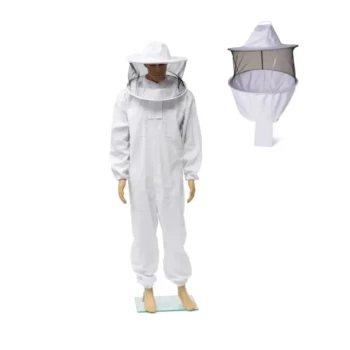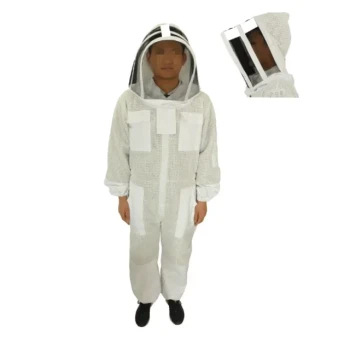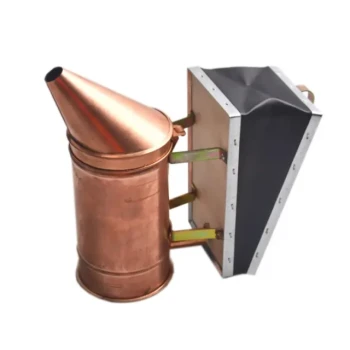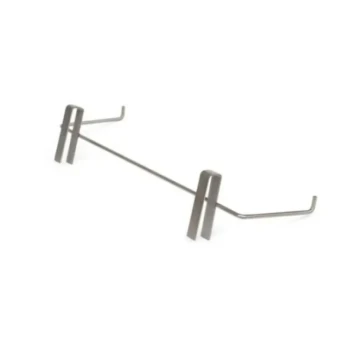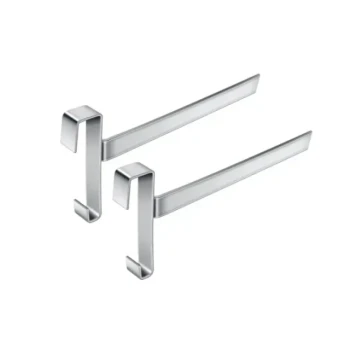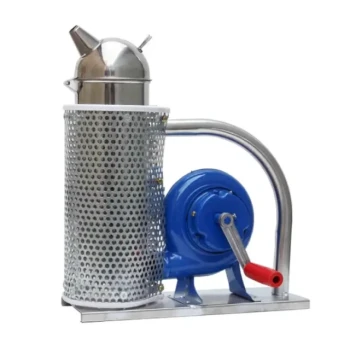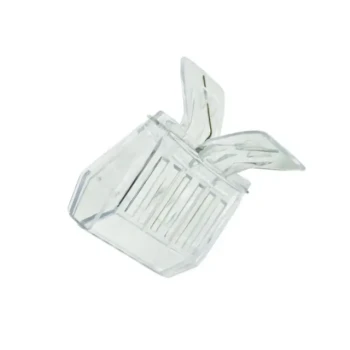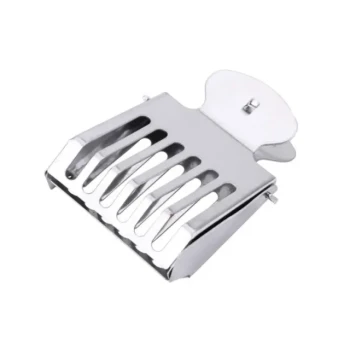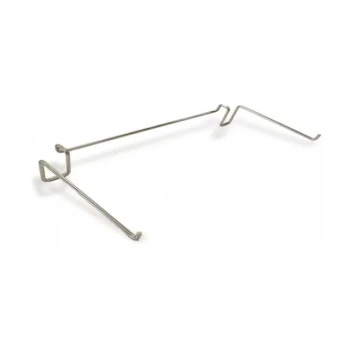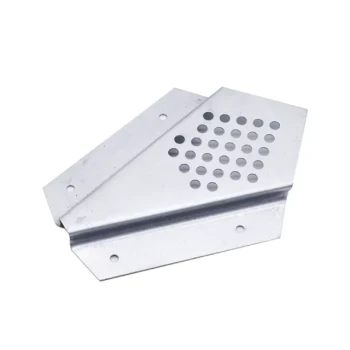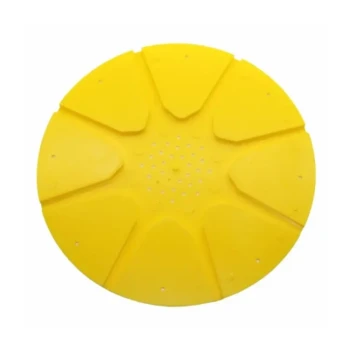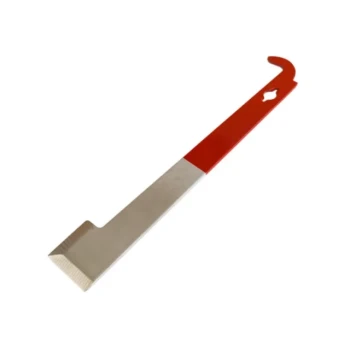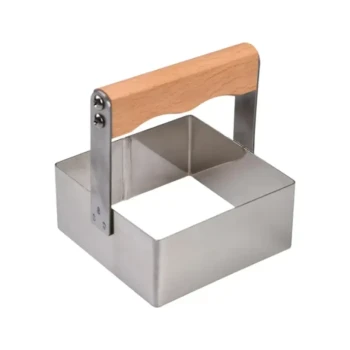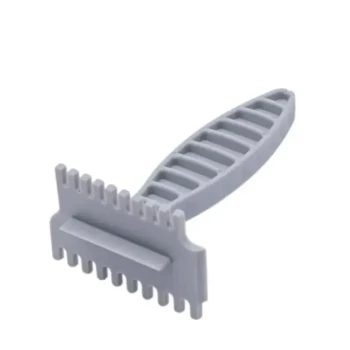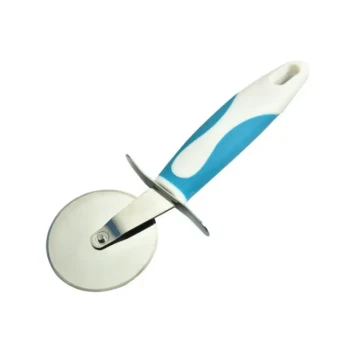Cleaning your beekeeping suit is not about aesthetics; it's a critical safety measure. A dirty suit accumulates bee stings, which release alarm pheromones that can trigger defensive behavior from your bees on subsequent inspections. Regularly washing your suit removes these chemical signals, ensuring you don't unintentionally agitate your colony and attract more stings.
A dirty beekeeping suit can turn your primary protective gear into a beacon for aggressive bee behavior. Proper, regular cleaning neutralizes these invisible threats and maintains the physical integrity of the suit, ensuring it remains a reliable shield rather than a liability.
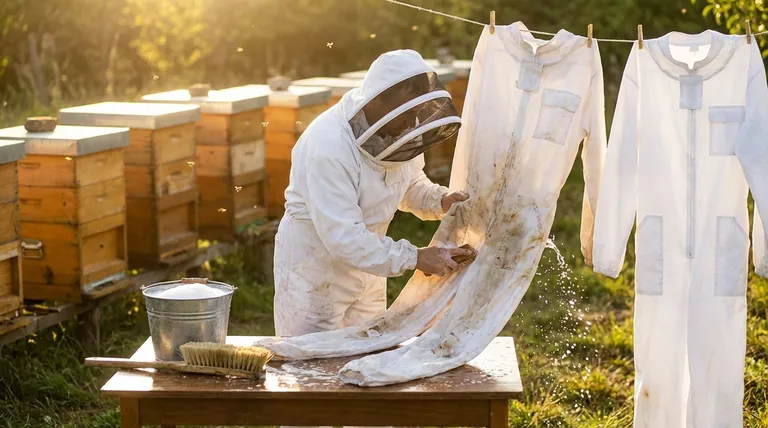
The Invisible Threat: Pheromones and Odors
Your primary reason for washing a bee suit is to remove the chemical triggers that bees leave behind. These signals can accumulate over time and make your presence more stressful for the colony.
Neutralizing the Alarm Signal
When a bee stings, it releases an alarm pheromone from its stinger. This chemical smells like bananas to humans and acts as a signal to other bees, marking the target and inciting them to attack.
Even if you remove the stinger, this pheromone lingers on the fabric. Washing the suit is the only effective way to neutralize this signal, presenting you as a neutral presence rather than a known threat during your next hive visit.
Removing Hive and Smoke Odors
Over time, your suit also absorbs the smells of the hive, propolis, and smoke. While these are normal beekeeping scents, a clean, odor-neutral suit is always the safest option to minimize any potential agitation.
Maintaining the Physical Barrier
Beyond removing pheromones, regular cleaning is essential for maintaining the suit's structural integrity. A clean suit is a suit you can trust.
The Importance of Inspection
The act of cleaning provides a perfect, regular opportunity to inspect your suit for damage. Laying it flat before or after washing allows you to easily spot small rips, tears, or failing seams that could allow a bee inside.
Preventing Material Degradation
Hive products like propolis and beeswax can build up on the fabric. These substances can make the material stiff and more susceptible to tearing, compromising its protective quality. Mild detergent effectively breaks down and removes this residue.
Ensuring Zipper and Seam Integrity
Zippers are a common point of failure on beekeeping suits. Keeping them free of wax and propolis ensures they function smoothly and close completely, leaving no gaps for determined bees to exploit.
Common Pitfalls in Bee Suit Care
How you clean your suit is as important as the act of cleaning itself. Improper washing can cause more harm than good.
Avoiding Harsh Chemicals
Never use bleach or fabric softener on your bee suit. Bleach can weaken the fabric fibers, while fabric softeners can leave behind strong scents that may irritate or attract bees. Always opt for a mild, unscented laundry detergent.
The Dangers of High Heat
You must not machine dry your bee suit. The high heat of a dryer can shrink the cotton, damage plastic zippers, and, most importantly, warp or melt the delicate mesh of your veil, rendering it useless.
Protecting Your Veil and Gloves
The veil and any leather gloves require special handling. They should never be put in a washing machine. Hand-wash your veil carefully to protect the mesh, and gently clean leather gloves according to their specific care instructions.
How to Apply This to Your Beekeeping Practice
Integrate suit maintenance into your regular beekeeping routine to ensure safety and protect your investment.
- If your primary focus is safety: Make washing your suit after any day with stings a non-negotiable rule to eliminate alarm pheromones.
- If your primary focus is longevity and value: Follow a gentle washing protocol with mild detergent and always hang your suit in the shade to air dry.
- If your primary focus is efficiency: Couple every wash with a thorough inspection to catch small tears or zipper issues before they become a critical failure in the field.
By treating your suit with the same care you give your hives, you ensure the safety and confidence needed for successful beekeeping.
Summary Table:
| Reason for Cleaning | Benefit | Key Consideration |
|---|---|---|
| Remove Alarm Pheromones | Prevents defensive bee behavior and reduces stings. | Neutralizes chemical signals from previous stings. |
| Maintain Physical Barrier | Ensures the suit remains tear-free and fully protective. | Allows for inspection of rips, seams, and zippers. |
| Prevent Material Degradation | Extends the suit's lifespan by removing propolis and wax. | Use mild, unscented detergent; avoid harsh chemicals. |
| Ensure Proper Care | Protects delicate components like the veil mesh. | Air dry only; never use a machine dryer or bleach. |
Protect yourself and your apiary with reliable, high-quality gear from HONESTBEE.
A clean, well-maintained suit is your first line of defense. For commercial apiaries and beekeeping equipment distributors, having access to durable, easy-to-clean protective equipment is essential for operational safety and efficiency. HONESTBEE supplies the wholesale beekeeping supplies and equipment you can trust.
Contact HONESTBEE today to discuss your wholesale needs and ensure your beekeeping operations are safe, productive, and profitable.
Visual Guide
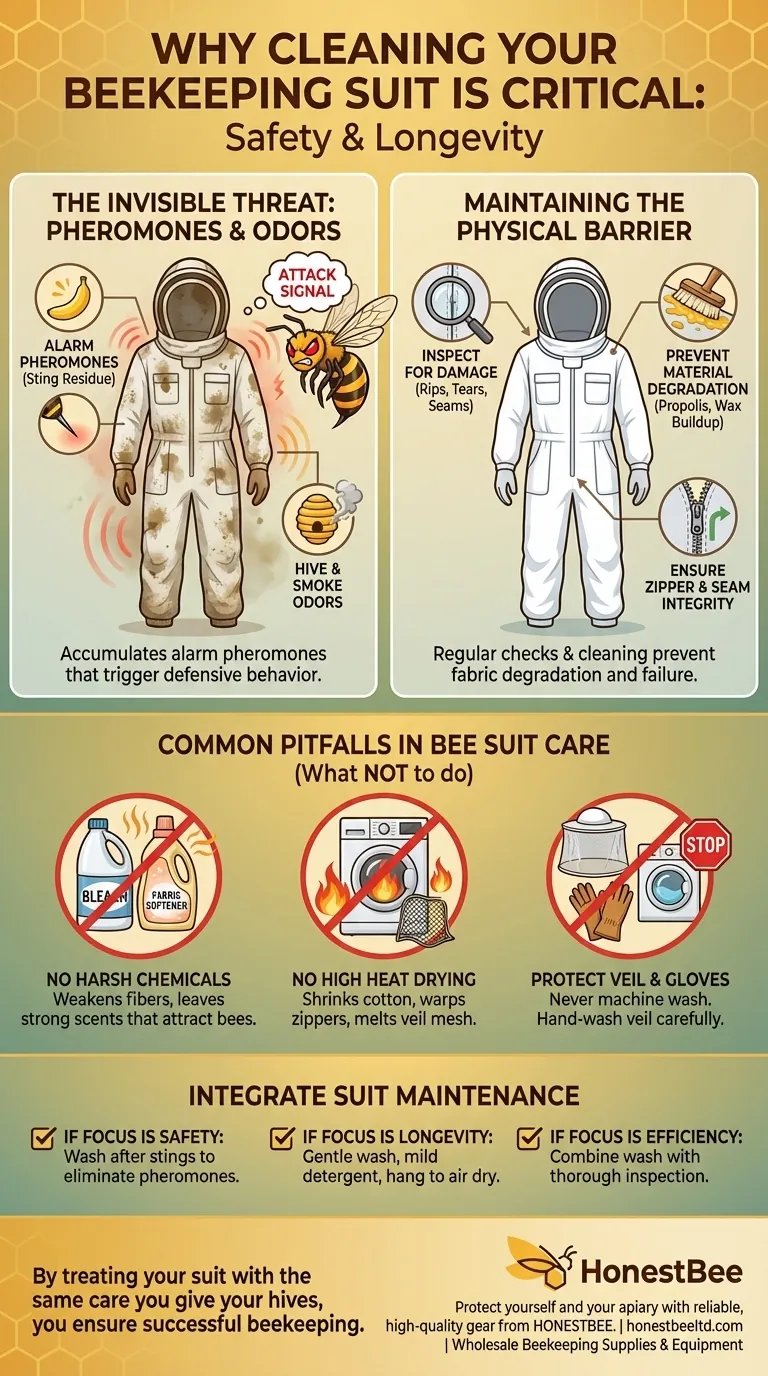
Related Products
- Professional Cotton Beekeeper Suit with Round Veil Design for Commercial Apiaries
- Three-Layer Ventilated Beekeeper Suit with Structured Fencing Veil
- Vented Beekeeping Jacket with Hood and Veil for Beekeepers
- Yellow Plastic Bucket Pail Perch for Beekeeping
- Premium Traditional Copper Bee Smoker with Bellows
People Also Ask
- What are the features of a standard bee suit? Essential Protection for Beekeepers
- How should one choose a beekeeping suit? Find the Perfect Balance of Protection & Comfort
- What are the essential components and functions of beekeeping protective gear? Secure Your Professional Apiary Safety
- What should be considered regarding the beekeeping suit in a starter kit? Expert Guide to Sizing, Material, and Safety
- What is recommended for beginners in beekeeping regarding protective clothing? A Complete Safety Guide for New Beekeepers
- What are the disadvantages of single-layer beekeeping suits? Avoid Heat Stroke and the Sweat Bridge Risk
- What fabric characteristics are necessary for effective beekeeping suits? Top Safety & Breathability Features
- What qualities and features should be considered when choosing protective beekeeping clothing? Your Safety Guide
